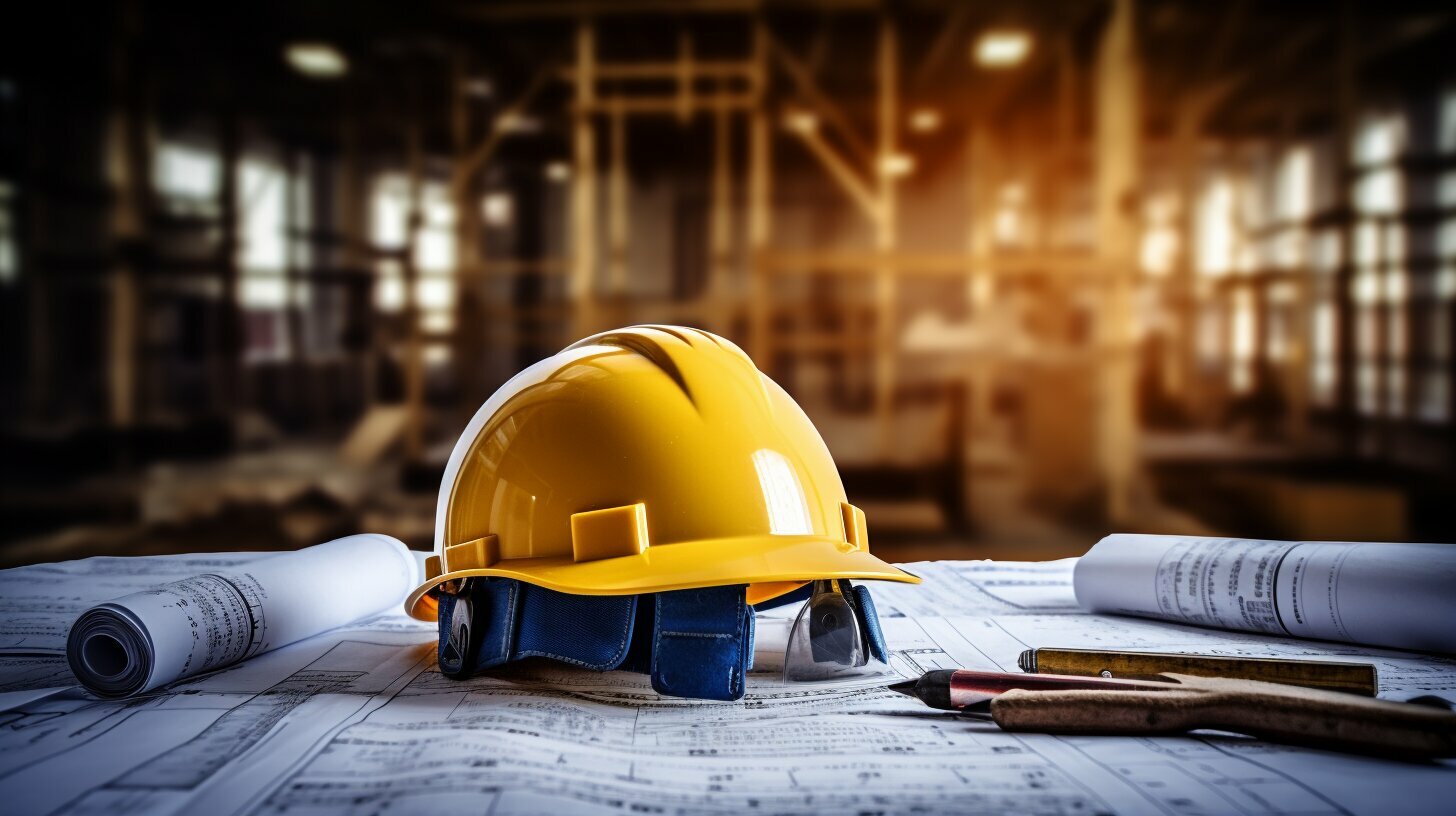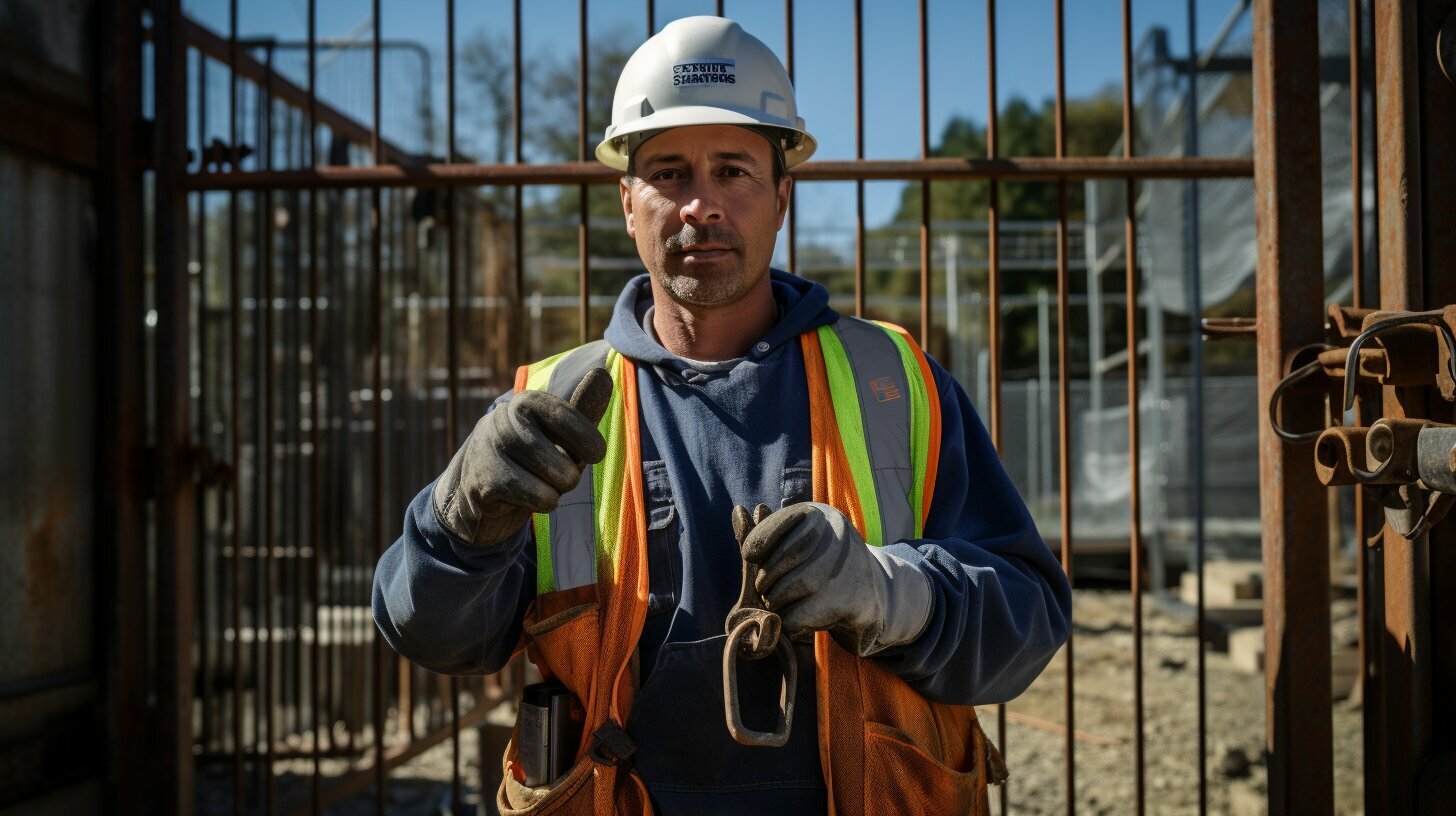
A general contractor plays a crucial role in construction projects, responsible for project management and overseeing subcontractors. They are tasked with coordinating supplies, laborers, and meeting permit requirements. The legal responsibilities of a general contractor are outlined in the contract with the client, which includes obligations and specifications. Detailed contracts are essential to protect the contractor from potential liability issues.
General contractors are responsible for project planning, management, and tracking progress throughout the construction project. They must ensure legal and regulatory compliance and address health and safety concerns. Obtaining the necessary licenses is also a requirement for general contractors, and they play a vital role in the bidding process for construction projects. In addition, they manage the overall building process and coordinate with specialty contractors.
Payment for general contractors is typically received directly from the property owner, but the payment process can be complex and prone to delays. To expedite payment, measures such as increasing visibility, streamlining paperwork, and maintaining communication can be implemented.
Key Takeaways
- A general contractor is responsible for project management and overseeing subcontractors during construction projects.
- They coordinate supplies, laborers, and ensure permit requirements are met.
- Detailed contracts are crucial to protect the contractor from liability issues.
- General contractors play a vital role in project planning, management, and tracking progress.
- They must ensure compliance with legal and regulatory requirements and address health and safety concerns.
Scheduling and Budgeting
Effective scheduling and budgeting are vital aspects of a general contractor’s responsibilities to ensure smooth project execution and quality control. By creating a well-structured schedule, the general contractor can coordinate the different phases of construction, including material deliveries, subcontractor timelines, and inspections. This allows for efficient workflow, avoiding delays and ensuring that the project stays on track.
Furthermore, budgeting plays a critical role in managing the financial aspects of the construction project. The general contractor must accurately estimate the costs of labor, materials, permits, and subcontractor services to develop a comprehensive budget. Careful consideration must be given to potential contingencies and unexpected expenses that may arise during the construction process.
To maintain quality control, the general contractor must have strict oversight throughout the project. They are responsible for ensuring that all work meets the specified standards, adheres to relevant codes and regulations, and is completed within the allocated budget and timeframe. Regular inspections and quality checks are crucial to identify any issues or deviations from the plan, allowing for timely corrections and adjustments.
Scheduling and Budgeting Best Practices
- Develop a detailed project schedule, considering dependencies and potential risks.
- Regularly update the schedule and communicate any changes to all project stakeholders.
- Create a comprehensive budget that includes all expected costs and contingencies.
- Regularly monitor and track expenses to ensure adherence to the budget.
- Implement effective communication channels to address any issues or concerns promptly.
“Proper scheduling and budgeting are the backbone of successful project management for general contractors. It allows for efficient resource allocation, timely completion, and overall project success.” – John Smith, Construction Project Manager
| Task | Start Date | End Date |
|---|---|---|
| Site Preparation | January 10, 2022 | January 15, 2022 |
| Foundation Construction | January 16, 2022 | January 30, 2022 |
| Structural Framing | January 31, 2022 | February 14, 2022 |
| Interior Finishes | February 15, 2022 | March 10, 2022 |
In conclusion, a general contractor is responsible for effective scheduling and budgeting to ensure the smooth execution of construction projects. By carefully managing timelines and costs, they can maintain quality control and meet the client’s expectations. With attention to detail and adherence to best practices, general contractors play a crucial role in the successful completion of construction projects.
Obtaining Permits and Licenses
General contractors are responsible for obtaining the required permits and licenses, ensuring compliance with safety regulations throughout the construction process. These permits and licenses serve as legal authorizations that allow the contractor to carry out the necessary work and ensure that the project meets all necessary building codes and regulations.
The process of obtaining permits and licenses can vary depending on the location and the specific requirements of the project. It typically involves submitting detailed plans and specifications to the appropriate authorities, who will review the documents to ensure they comply with local regulations. Once approved, the contractor can proceed with the construction.
Table: Permits and Licenses Required for Construction Projects
| Permit/License Type | Required for |
|---|---|
| Building Permit | Constructing, renovating, or altering a building |
| Electrical Permit | Electrical work, such as wiring or installation of fixtures |
| Plumbing Permit | Plumbing work, including installation of pipes and fixtures |
| Mechanical Permit | Installation or alteration of mechanical systems, such as HVAC |
Additionally, general contractors must ensure that safety compliance measures are met throughout the construction process. This includes implementing proper safety protocols, providing necessary protective equipment to workers, and maintaining a safe working environment. Failure to comply with safety regulations can result in fines, delays, or even legal action.
By obtaining the required permits and licenses and ensuring safety compliance, general contractors play a critical role in ensuring the construction project progresses smoothly and in accordance with legal requirements.
Contract Negotiation and Material Procurement
Negotiating contracts and procuring materials are integral parts of a general contractor’s responsibilities to ensure successful project outcomes. A general contractor plays a crucial role in contract negotiation, working alongside the client and subcontractors to establish clear terms and conditions. This includes defining project scope, deliverables, timelines, and financial agreements. Effective contract negotiation helps mitigate risks and ensures that all parties involved are fully aware of their obligations and expectations.
When it comes to material procurement, a general contractor is responsible for sourcing and acquiring the necessary materials for the construction project. This involves conducting thorough research to identify reliable suppliers, comparing quotes and prices, and ensuring that the materials meet the required specifications and quality standards. By procuring materials efficiently and cost-effectively, a general contractor helps to control project costs and maintain the desired level of quality.
Benefits of Effective Contract Negotiation and Material Procurement
- Reducing Costs: Through effective contract negotiation and material procurement, a general contractor can negotiate favorable pricing and terms, helping to reduce overall project costs.
- Ensuring Quality: By carefully selecting suppliers and procuring high-quality materials, a general contractor can maintain the desired level of quality throughout the construction project.
- Minimizing Delays: Clear and well-defined contracts, along with efficient material procurement, help minimize project delays and ensure smooth progress.
- Building Trust: Effective contract negotiation and material procurement help build trust between the general contractor, client, and subcontractors, fostering positive working relationships.
In summary, contract negotiation and material procurement are critical responsibilities of a general contractor. By effectively negotiating contracts and procuring materials, a general contractor can contribute to the success of a construction project by reducing costs, ensuring quality, minimizing delays, and building trust among all stakeholders involved.
| Key Points |
|---|
| A general contractor is responsible for contract negotiation and material procurement in a construction project. |
| Thorough contract negotiation helps establish clear terms, conditions, and expectations. |
| Efficient material procurement involves researching suppliers, comparing quotes, and ensuring quality standards are met. |
| Benefits of effective contract negotiation and material procurement include cost reduction, quality assurance, minimized delays, and enhanced trust. |
Project Planning and Management
General contractors are responsible for project planning, management, and tracking progress to ensure the timely completion of construction projects. It is their duty to oversee all aspects of the project, from coordinating supplies and laborers to ensuring legal compliance and addressing safety concerns.
To effectively manage a construction project, general contractors employ various project planning techniques and tools. These may include creating detailed project schedules, assigning tasks to subcontractors, and establishing deadlines for each stage of the project. By implementing a well-structured plan, general contractors can streamline the construction process and keep it on track.
In addition to project planning, general contractors must also provide proper project management. This involves overseeing the day-to-day operations, monitoring subcontractor progress, and communicating with the client to ensure their needs and expectations are met. Regular site visits, progress reports, and team meetings are common practices in effective project management.
To aid in tracking progress, general contractors use various methods such as project management software and visual aids like charts and graphs. These tools help them monitor the project’s timeline, identify potential delays or bottlenecks, and make necessary adjustments to keep the project on schedule.
Importance of Effective Communication
Effective communication plays a crucial role in successful project planning and management. General contractors are responsible for maintaining clear and open lines of communication between all parties involved in the project, including subcontractors, suppliers, architects, and the client. By facilitating communication, general contractors can ensure that everyone is on the same page, resolve issues promptly, and keep the project progressing smoothly.
Streamlining Payment Process
An essential aspect of project management for general contractors is ensuring a smooth payment process. While general contractors typically receive payment directly from the property owner, the payment process can sometimes be complex and prone to delays. To expedite payment, general contractors can implement measures such as establishing clear payment terms in contracts, submitting invoices promptly, and maintaining open communication with the client regarding payment expectations.
Overall, project planning, management, and progress tracking are vital responsibilities for general contractors. By effectively coordinating all aspects of a construction project, they can help ensure its timely completion, adhere to legal and regulatory requirements, and deliver a successful outcome for their clients.
| Responsibilities | Methods |
|---|---|
| Project Planning |
|
| Project Management |
|
| Tracking Progress |
|
Licensing and Bidding Process
Licensing is a vital requirement for general contractors, and they play a significant role in the competitive bidding process for construction projects. Obtaining the necessary licenses demonstrates the contractor’s competence and compliance with the legal and regulatory requirements. It also assures clients that the contractor has the necessary skills and qualifications to handle the project.
During the bidding process, general contractors submit proposals outlining their qualifications, experience, and cost estimates for the project. They compete with other contractors to secure the contract based on factors such as reputation, past performance, and pricing. The bidding process allows clients to evaluate multiple contractors and select the one that best meets their needs.
When preparing a bid, general contractors need to carefully analyze project requirements and specifications. They must accurately estimate costs, including labor, materials, and any subcontractor fees. This requires detailed planning, thorough cost analysis, and effective negotiation skills to ensure a competitive bid that is both profitable for the contractor and appealing to the client.
Benefits of the Bidding Process
The competitive bidding process offers several benefits for both clients and general contractors. For clients, it allows them to compare different proposals and select the most suitable contractor based on criteria such as expertise, price, and timeline. Bidding also promotes transparency and fairness in the selection process, ensuring that contracts are awarded based on merit.
For general contractors, the bidding process provides an opportunity to showcase their capabilities and secure new projects. Winning a bid can lead to increased visibility, reputation, and potential for future collaborations. It also allows contractors to expand their network and forge valuable relationships with clients, subcontractors, and suppliers.
| Benefits for Clients | Benefits for General Contractors |
|---|---|
| Comparing proposals and selecting the most suitable contractor | Opportunity to showcase capabilities and secure new projects |
| Promoting transparency and fairness in the selection process | Potential for increased visibility, reputation, and future collaborations |
| Ensuring contracts are awarded based on merit | Expanding network and building relationships |
Conclusion
General contractors shoulder numerous responsibilities, ranging from project management and subcontractor oversight to obtaining permits and licenses, ensuring safety compliance, contract negotiation, material procurement, and project planning. Their expertise and attention to detail are crucial for seamless construction project execution.
A general contractor is responsible for coordinating supplies and laborers, ensuring that all necessary permits and licenses are obtained, and complying with legal and regulatory requirements. They play a key role in project planning and management, ensuring that the construction project progresses on schedule and within the allocated budget.
In addition, general contractors are involved in contract negotiation and material procurement, sourcing quality materials at competitive prices. They must also address health and safety concerns, ensuring that the construction site adheres to all relevant safety regulations and standards.
Furthermore, licensing is required for general contractors, which demonstrates their competency and adherence to professional standards. General contractors also play a crucial role in the bidding process for construction projects, providing estimates and proposals to potential clients.
To successfully manage all these responsibilities, general contractors must have strong organizational and communication skills. They need to coordinate with specialty contractors and subcontractors to ensure that all aspects of the construction project are properly executed. Payment for general contractors is typically received directly from the property owner, and measures to increase visibility, streamline paperwork, and maintain communication can help expedite the payment process.
In conclusion, general contractors play a vital role in the construction industry, overseeing and managing various aspects of the construction project. Their expertise and ability to navigate complex requirements contribute to the successful completion of projects, ensuring that clients’ visions are brought to life.
FAQ
What is a general contractor responsible for?
A general contractor is responsible for coordinating supplies, laborers, and meeting permit requirements during a construction project. They are also responsible for project planning, management, and tracking progress.
What are the legal responsibilities of a general contractor?
The legal responsibilities of a general contractor are largely defined by the contract with the client, which outlines obligations and specifications. Detailed contracts are important to protect the contractor from potential liability issues.
Do general contractors need a license?
Yes, licensing is required for general contractors. They must meet certain requirements and qualifications to obtain a license.
What role do general contractors play in the bidding process?
General contractors play a crucial role in the bidding process for construction projects. They submit bids based on project requirements and specifications, and their expertise and experience can influence the selection process.
How do general contractors get paid?
General contractors usually receive payment directly from the property owner. However, the payment process can be complex and at risk of delays. Measures to increase visibility, streamline paperwork, and maintain communication can help expedite payment.
continue reading
Related Posts
Obtaining a general contractor license is a crucial step towards […]
Acquiring a general contractor license involves a multi-step journey that […]
A general contractor plays a crucial role in the successful […]




